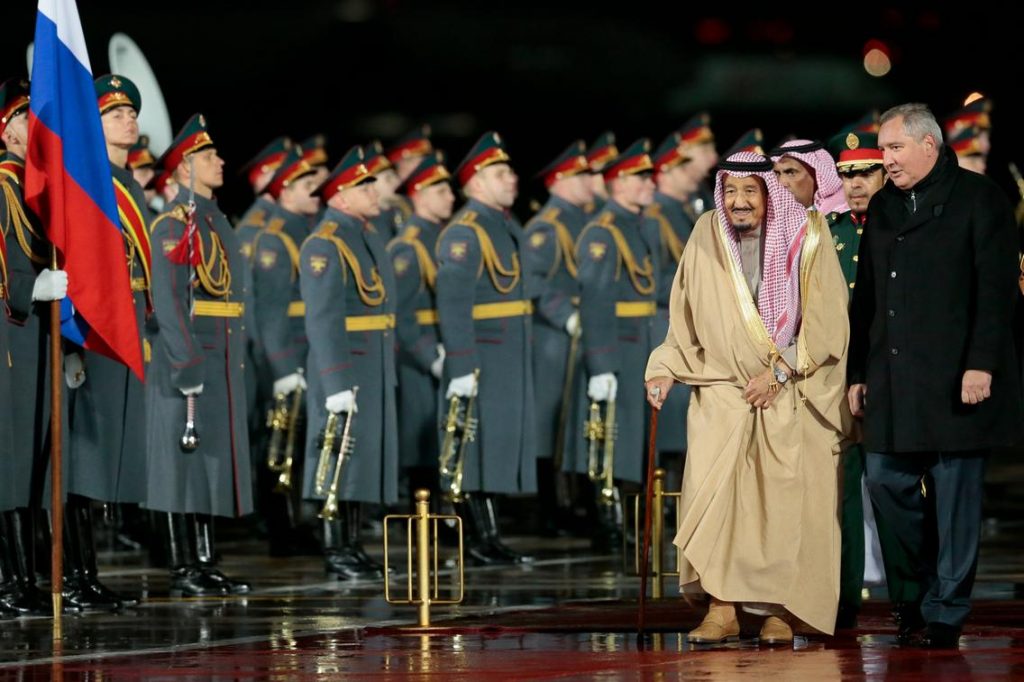This week, the media in the world was shocked by the Saudi government’s work; from the driving license for women and the celebration of the famous Egyptian singer Gulsum, after 30 years, that women can export fatwas was interesting for the media.
But in the world of politics, one of the coolest news was that the Saudi king arrived in Moscow.
AP reported that Salman bin Abdulaziz as the first king of Saudi Arabia to travel to Russia during the history of the relations between Riyadh and Moscow.
During the visit, Saudi Arabia is expected to invest $1 billion in Russia’s energy sector; Russian Energy Minister Alexander Novak said.
As the leaders of the world’s two biggest oil exporters, King Salman and Vladimir Putin are expected to agree to further strengthen measures to stem the drop in the global price of fossil fuels.
But the two sides have decided to end their animus, and in a round of meetings will sign commercial deals, coordinate on oil prices, and discuss a potential peace settlement in Syria, including the future role of Iran, now that it seems clear that President Bashar-al Assad is not going to be deposed.
Although the two countries agree when it comes to oil production and cutting output until March 2018, Riyadh and Moscow have clashed on their policy in Syria where the two countries support opposing sides in the war.
While the meetings, that will take place in the Kremlin, reflect the strengthening of ties between the two countries, it is Moscow’s relationship with Iran that will probably be the biggest point of contention in the talks.
“Previously, our relations with Saudi Arabia used to be just on the surface, but right now they are developing rapidly,” Russian president Vladimir Putin said on Wednesday. “There is very good potential, and we are looking ahead with confidence, both with Saudi Arabia and the Middle East in general.”
The trips of the presidents of the countries of the Middle East and Asia, as well as the trips of the foreign ministers of these countries in the Middle East after the United Nations General Assembly in the United States and the Kurdish referendum, reveal a general change in the policies of the leaders of the Middle East, but what will be this policy, only time will expose.
